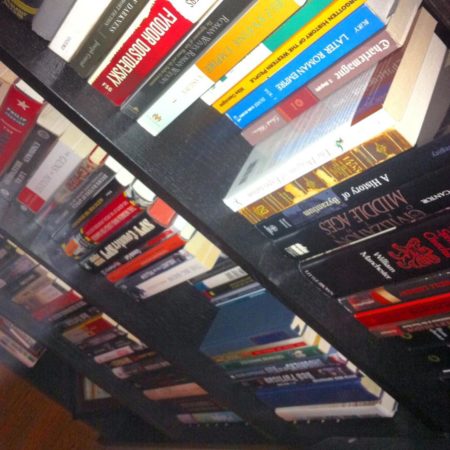One of the secrets I was taught many years ago was to love reference material. I learned that a good bibliography was a powerful tool in my hands, and that to read footnotes unlocked a greater understanding. It was like a power-up over the guy who just read books because he had to, and so I learned that reading could make me smarter. I learned to enjoy it 1. As a child, I thought that the bibliography must be that storehouse of greater expert knowledge that the author tapped into while forming his own book. I always viewed the bibliography as the thing an author wished he didn’t have to include, because it exposed all his secrets.
A bibliography is especially useful when studying a particular topic that grabs a reader’s interest. For example, in my studies of the Jewish Holocaust, my real goal was to understand the behavior of man under such evil and burdensome affliction as the Nazi camp system. I was particularly curious to know the state of mind of men and women who, though they proclaimed some manner of religion, did not believe in Jesus Christ. These terribly mistreated men and women left us with a number of memoirs and testimonies that truly do make known the image of God in man – if only an obscured image untouched by regeneration – and show that the determinate will of people can implore them to survive, at least for a while. But most of these memoirs are obscure and little known titles I would have never found on my own. It was when I ventured into the small typography of the bibliography in the back of a few popular memoirs that I discovered the great richness of stories that existed elsewhere.2 These truly unlocked a vast world of knowledge.
In my study each week for preaching, books from a wide variety of sources are a great help. Commentaries and theological works form the backbone of this delightful work. But often a theme in the passage of scripture emerges that implores me to look deeper, to find illustrations, to investigate case-studies, to read testimonies, and so on. Any writer, researcher or speaker can greatly benefit from wandering down such rabbit trails. Our problem as people who enjoy reading is that we often get far down a side-path, enchanted by all the wonderful discoveries, and forget we have a deadline. I recall studying the best way to grow the perfect tomato garden. It was quickly evident to me how easily the unsuspecting reader is lured down the wonderfully scented descriptions of Mama Scavoni’s stuffed Cour d’Bue recipes and the deep magic of cooking a legit tomato soup.3 But who doesn’t delight in that? Call me Doug and shout squirrel!4
This is the role of a good bibliography. You can put a pin in that thing or another, and come back to it later (if you are disciplined enough and you are not a talking dog named Doug). A good bibliography is a treasure map to infinite rabbit trails, side-notes, essential clarification, greater depth, expert knowledge, soup recipes and how-to-fish tutorials. Use your bibliography, teach your children to do so as you disciple them to love learning. Find a topic they enjoy, set them upon it with good number of resources, and encourage them to go where the trail leads. Learning should unlock wonders!
Bibliography
- Jacobs, Alan. The Pleasures of Reading in an Age of Distraction. New York: Oxford U Press, 2011. Print.
- Lengyel, Olga. Five Chimneys: A Woman Survivors True Story of Auschwitz . 2nd ed. Chicago: Chicago Review Press, 1995. Print.
- Smith, Andrew F. The Tomato in America: Early History, Culture, and Cookery. Columbia, SC: U of South Carolina Press, 1994. Print.
- Up. Dir. Pete Docter. Perf. Ed Asner, Christopher Plummer, Jordan Nagai. Walt Disney Pictures, Pixar Animation Studios, 2009. DVD.


2 Comments
[…] and study. Part of that love is the usefulness of a good list of references. I wrote about this in Love the Bibliography, and know that fellow bibliophiles appreciate such a resource. It also serves to be a tool by which […]
[…] the bibliography of works cited. I wrote about the usefulness of a good list of references in Love the Bibliography, and know that fellow bibliophiles appreciate such a resource. It also serves to be a tool by which […]
Commenting has been turned off.